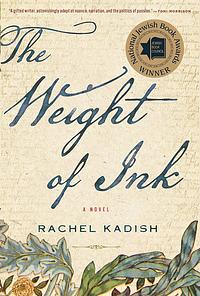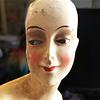Take a photo of a barcode or cover
challenging
mysterious
reflective
slow-paced
Plot or Character Driven:
Character
challenging
dark
informative
mysterious
reflective
sad
slow-paced
Plot or Character Driven:
A mix
Strong character development:
Yes
Loveable characters:
Complicated
Diverse cast of characters:
Yes
Flaws of characters a main focus:
Yes
challenging
dark
emotional
reflective
sad
slow-paced
Plot or Character Driven:
A mix
Strong character development:
Yes
Loveable characters:
Complicated
Diverse cast of characters:
No
Flaws of characters a main focus:
No
hopeful
mysterious
reflective
medium-paced
Plot or Character Driven:
A mix
Strong character development:
Yes
Loveable characters:
Yes
Diverse cast of characters:
Yes
Flaws of characters a main focus:
Yes
challenging
inspiring
reflective
slow-paced
Plot or Character Driven:
Character
Strong character development:
Yes
Loveable characters:
Yes
Diverse cast of characters:
Yes
Flaws of characters a main focus:
Yes
Biggest complaint is the slowness and sometimes seemingly overly complex machinations.
But it’s well written and I loved seeing a book from 1660s London that isn’t just the plague and fire. Learning about Ester with Aaron and Helen was fascinating, and their relationship was great (not romantic). Immersive atmosphere too; I could feel myself getting sucked in. It does take about 100 pages to really get into it and it’s not a fast paced book but it’s worth it
But it’s well written and I loved seeing a book from 1660s London that isn’t just the plague and fire. Learning about Ester with Aaron and Helen was fascinating, and their relationship was great (not romantic). Immersive atmosphere too; I could feel myself getting sucked in. It does take about 100 pages to really get into it and it’s not a fast paced book but it’s worth it
challenging
emotional
reflective
slow-paced
Plot or Character Driven:
Character
Strong character development:
Yes
Loveable characters:
Yes
Diverse cast of characters:
Yes
Flaws of characters a main focus:
Yes
I disliked this book for much of the time I read it. It is a far better book than 3 stars. It is a far better book than I can appreciate. And in its final section the various strands are finally woven together so artfully, all could be forgiven. Yet, I struggled with this one so much. Many (all?) of the characters are so intentionally unlikeable. Those strands are many and disparate and don’t truly weave together until very late in the book. During the rest of that time I did not trust where this book was taking me as the reader, I did not find much interest in either of the plots of the two main story lines, and I really hated the characters. Especially Aaron. What a putz! Anyway, it’s a masterful work. So smart. But to say it was a slow burn would be giving it speed and momentum the bulk of the story never had. I am an inpatient person and inpatient reader, so I struggled. Yet something kept me reading all the way to end, and I’m happy I did so.
Loved loved loved it! A fantastic read. The story moves between present day and the 1660s in England. I loved the characters, especially Helen Watt, the professor. This is another one I may re-read.
slow-paced
challenging
emotional
informative
mysterious
reflective
medium-paced
Plot or Character Driven:
A mix
Strong character development:
No
Loveable characters:
Yes
Diverse cast of characters:
Yes
Flaws of characters a main focus:
Yes
Helen, who loved an Israeli soldier when she was very young, is a scholar who researches the Jewish diaspora in Europe. Helen is not Jewish, but she's dedicated her life to Jewish personalities and topics. She's called in to evaluate a cache of 17th century documents found in an old house. These are papers and copies of letters written by a blind rabbi whose correspondence was carried out by a scribe. To help Helen evaluate the papers, she's given an American graduate student, Aaron, who is at loose ends when he realizes his original dissertation topic is weak at best. Aaron is Jewish, and he's infatuated with a girl who ran off to Israel, in part because she was tired of men like Aaron.
The book really takes off when Ester is introduced. Ester is a young 17th century Portuguese Jew who'd relocated to Amsterdam with her family, suffered a fiery tragedy, then moved to England with Rabbi HaCoen Mendes, a scholar who'd been blinded by the Inquisition. Ester's brother is supposed to be studying with the rabbi and serving as his scribe, but Ester was always the better scholar, and then her brother gets himself killed. Ester isn't just proficient in languages, and she hasn't just memorized psalms, but she is full of philosophical fire, full of burning questions.
The contemporary researchers discover things about the papers, and about Ester, while also reveling more about themselves. Ester's 17th century activities range further and further from what is proper for a young woman of her era and station. It all ends up unlikely, but I didn't really mind.
There's a question of a side character's parentage that bobs up here and there throughout the narrative, and the conclusion that one is eventually meant to draw is kind of silly. I'm glad it wasn't suggested earlier in the story, because I wouldn't have been able to keep reading with my eyes rolling.
The book really takes off when Ester is introduced. Ester is a young 17th century Portuguese Jew who'd relocated to Amsterdam with her family, suffered a fiery tragedy, then moved to England with Rabbi HaCoen Mendes, a scholar who'd been blinded by the Inquisition. Ester's brother is supposed to be studying with the rabbi and serving as his scribe, but Ester was always the better scholar, and then her brother gets himself killed. Ester isn't just proficient in languages, and she hasn't just memorized psalms, but she is full of philosophical fire, full of burning questions.
The contemporary researchers discover things about the papers, and about Ester, while also reveling more about themselves. Ester's 17th century activities range further and further from what is proper for a young woman of her era and station. It all ends up unlikely, but I didn't really mind.
There's a question of a side character's parentage that bobs up here and there throughout the narrative, and the conclusion that one is eventually meant to draw is kind of silly. I'm glad it wasn't suggested earlier in the story, because I wouldn't have been able to keep reading with my eyes rolling.






